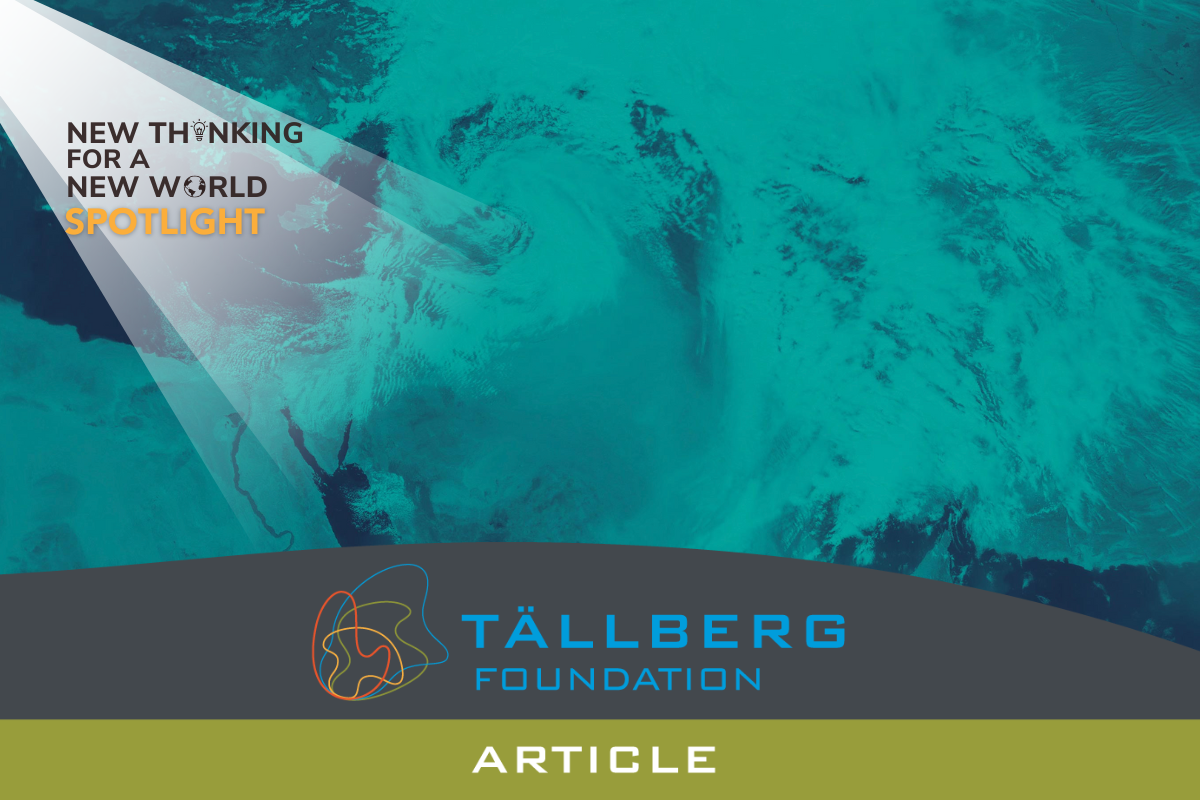“There are more red lines right now, more lines between countries, between ideologies, between peoples than have ever really existed at any single time in history.”
For thousands of years, kings, presidents, generals, warriors and politicians of all sorts have been drawing real or metaphorical “lines in the sand” to constrain or dare their adversaries. Sometimes those red lines were physical borders—Julius Caesar and the Rubicon or Adolf Hitler and Poland —and sometimes they were behaviors—President Obama’s threat of retribution if Syria gassed its own people (which they did, but Obama did not retaliate). Sometimes those lines caused wars and sometimes they prevented them; the best of them were skillfully drawn and clear in their purpose. Always they were and are the woof and warp of diplomacy.
David Andelman, a storied American international journalist, has studied red lines up close for decades as he reported on global conflicts and negotiations and, more recently, as the author of A Red Line in the Sand: Diplomacy, Strategy, and the History of Wars That Might Still Happen. If you are concerned about those “might happen” wars, the book (and Tällberg’s recent podcast) are essential reading and listening.
Andelman is deeply worried that the proliferation of red lines in the modern era, coupled with what he sees as the gross mismanagement of America’s global interests by President Trump, risk disaster. In a recent New Thinking for a New World conversation with Tällberg’s Alan Stoga, Andelman was blunt: “the only way we [the United States] are ever going to become a major power again in the world” is to persuade our allies, especially in Europe, that Trump and his foreign policies were an aberration and that America has “not simply leveled out in a long downward spiral, but has in fact reversed that spiral.”
Andelman is optimistic that can happen, but admits the global situation is parlous at best. There are strategic challenges from China and Russia; America’s European allies need reassurance about the future direction of U.S. policy; Middle Eastern countries need to know, on the one hand, how the United States will cope with the implications of the recently negotiated Abraham Accords (that laid the basis for peace between some Arab states and Israel) and, on the other, with an Iran that has accelerated its nuclear enrichment program.
But it all starts with President Biden making it clear “that we [the United States] are back in the world, that we want to take down the red lines that the Trump administration established either in an ill-considered or actually malignant fashion…and that we’re reliable and that we’re constant.” Andelman clearly believes that global order requires active American management, rooted in recognition of U.S. power and built on long-term, predictable U.S. actions. Trump, he thinks, confused everything.
Russia’s recent jailing of Alexy Navalny is a case in point. “That was a direct, clear signal to the United States and the West: we don’t care, we’re going to do anything we feel like doing if it’s important to us.” And Andelman believes the Biden foreign policy team needs to make it equally clear to Russia that such behavior is unacceptable if they want even a minimally positive relationship with the United States. Indeed, he generalizes from the Navalny case: “I think all of these countries need to understand that red lines cut two ways, and we can establish them and we can enforce them just as well as they can. And we will watch how they respect our lines…if they want to have any kind of a decent relationship with us.”
The biggest global issue, of course, is the evolving relationship between the United States and China. In a world where some people think that America’s power is waning, no one doubts that China’s is waxing. For better or worse, the relationship between the two powers is critical to war and peace, and to the evolution of the global economy and global trade. In one sense, Andelman argues that the key to a peaceful, successful future is simple: “What China really wants is to be accepted and acknowledged as a great power;” something they deserve and that the United States should respect. However, almost in the next breath he adds, “They want to be prosperous; they want to rule the world economically.”
That could be more complicated: it’s one thing to be accepted as a great power and another to rule the world. Even if the latter is a bit of hyperbole, Andelman acknowledges that China is growing as a military power with a “blue water navy,” “aircraft carriers,” “military bases…around the Indian Ocean, over towards the Middle East, and Africa.” Question: What’s China’s purpose, beyond “respect”? Answer: To “expand their ‘front yard’ from just the South China Sea, which they have now basically secured, to other parts of the world.” And that, of course, is problematic for the United States and others.
Andelman blames Trump for having squandered what he describes as a relatively good position in Asia when the former President disowned the Asian trade agreement that had been negotiated by President Obama (as part of the so-called “pivot to Asia”). He notes that, in our Trump-caused absence from a constructive engagement in the region, the Chinese established their own regional trade and investment organization. Cynically, Andleman says that the Chinese “may be trying to steal these people’s islands—islands that are claimed by Vietnam and the Philippines and Malaysia—but at the same time…trading with them and allowing them to establish and open factories that will trade with China.” The yin and yang of Chinese policy, reflective of their self-confidence and strength, have created a dramatic new reality in Asia.
What is the antidote? “We need to get back to the position of some kind of a leadership role.”
Inshallah!
Let us know what YOU think and leave your comment below
David A. Andelman recently spoke with Alan Stoga as part of the Tällberg Foundation’s “New Thinking for a New World” podcast series. Hear their whole conversation here or find us on a podcast platform of your choice (iTunes, Spotify, Acast, Stitcher, Libsyn, etc).
 David A. Andelman, a columnist for CNN, twice winner of the Deadline Club Award, and executive director of The Red Lines Project, is the author of “A Red Line in the Sand: Diplomacy, Strategy, and the History of Wars That Might Still Happen” and host of its Evergreen podcast. His previous works include “A Shattered Peace: Versailles 1919 and the Price We Pay Today”. He formerly was a correspondent for The New York Times and CBS News in Europe and Asia and editor and publisher of World Policy Journal. He is a member of the Council on Foreign Relations and past president of the Overseas Press Club of America and the Silurians Press Club. Follow him on Twitter @DavidAndelman.
David A. Andelman, a columnist for CNN, twice winner of the Deadline Club Award, and executive director of The Red Lines Project, is the author of “A Red Line in the Sand: Diplomacy, Strategy, and the History of Wars That Might Still Happen” and host of its Evergreen podcast. His previous works include “A Shattered Peace: Versailles 1919 and the Price We Pay Today”. He formerly was a correspondent for The New York Times and CBS News in Europe and Asia and editor and publisher of World Policy Journal. He is a member of the Council on Foreign Relations and past president of the Overseas Press Club of America and the Silurians Press Club. Follow him on Twitter @DavidAndelman.




0 Comments